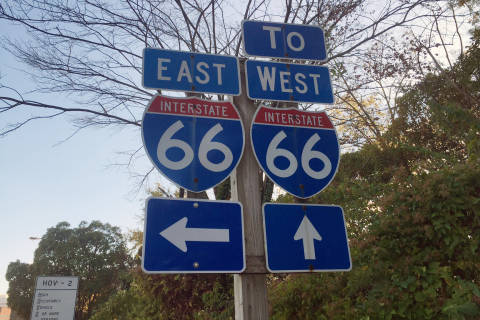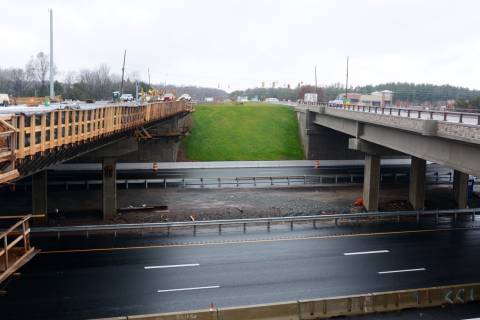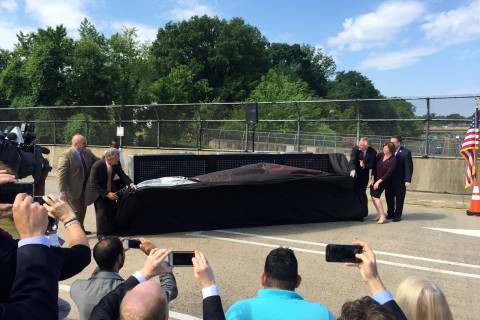WASHINGTON — Virginia is set to sign a contract Thursday with a group of private companies promising to bring two toll lanes in each direction to Interstate 66 between the Capital Beltway and Gainesville.
The contract includes permission for the company to allow trucks to use the lanes for a higher toll through a provision added in late July.
Virginia Transportation Secretary Aubrey Layne said ahead of the contract signing that the ultimate decision is now up to the companies involved, presuming their designs meet noise, safety and other requirements even with trucks using the lanes. Trucks will be required to pay at least three times the toll other drivers are paying at a given time.
Layne said allowing trucks in the lanes led to a higher payment to Virginia from the Spanish-led private groups, although he did not want to offer a specific estimate. He believes the deal includes enough money to ensure the project will “appropriately address any concerns regarding the trucks.”
Virginia Department of Transportation Commissioner Charlie Kilpatrick suggested some time-sensitive deliveries could prompt trucks to pay to use the lanes. He said that would also create more space in the three general purpose lanes that will remain next to the two so-called “Express Lanes” in each direction.
The selected private construction, financing and operation consortium, Express Mobility Partners, is made up of Ferrovial, a subsidiary called Cintra, Meridam and Allan Myers VA. They won the bidding over a team that included Australia-based Transurban, which operates the 95 and 495 Express Lanes.
Kilpatrick said both teams offered “some incredible ideas” to keep costs down, including different design and construction plans to avoid disturbing Metro power stations that would have proved costly to move or rebuild.
Other alternative technical concepts, some details of which could be revealed after the contract is finalized, include different interchange configurations from the original designs.
Layne said the changes added up to “real money.”
Final designs are expected to go to public hearings in the second half of 2017 after the financial part of the deal is finalized by July. Construction is estimated to cost $2.3 billion.
The winning bid also promises that the road will be largely rebuilt before it is returned to state control in 50 years, Layne said.
The deal is estimated to provide the state $4.1 billion in net present value, so the companies involved are betting that tolls will top that amount over the length of the deal.
Similar to the 95 and 495 Express Lanes, the new tolls are set based on the number of vehicles in the lanes with the goal of keeping traffic moving at 55 mph.
Drivers with three or more people in the car and an E-ZPass Flex switched to HOV mode travel free. The deal also includes funding for options such as commuter buses and park and rides.
Layne said the exact formula used to calculate the dynamic tolls is the only part of the deal that will remain private when the contract details are released, since it is proprietary.
Opponents of tolls have complained about the exact price projections not being available to the public.
“There is no published toll,” Layne said. “Everybody goes ‘Oh, they’re hiding it.’ We’re not hiding the goddamn tolls. What we’re saying is that it’s the same thing on 95.”








